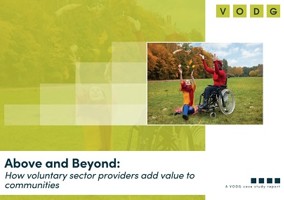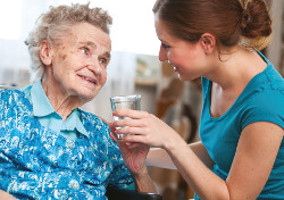In 2014 the new Care Act was broadly welcomed by local authorities, the voluntary sector and those caring for older and disabled people. It was regarded as a good piece of law – collaboratively produced by the coalition government. It set out consolidated provision for safeguarding, information and advice, care assessments – and assessments for carers, prevention, portability, and personal payments. And much more.
But since then austerity has been biting hard into local authorities’ care budgets. As Jeremy Hunt said on Newsnight last week "in retrospect I can see the cuts to social care were in a way the most silent and the most deadly".
Since 2010, £8.4bn has been slashed from adult social care funding and over 400,000 fewer adults are in receipt of council funded care. There are estimated to be 1.5 million people with unmet care needs in England.
And those estimates were made prior to the outbreak of the Covid-19 virus. As the pandemic continues to affect increasing numbers of people in the UK, the pressure on local authorities will be even greater. Although the government recently announced that they would be providing an additional £1.6bn local authorities to support them over the Covid-19 crisis, this will not entirely restore the monies that have been lost. And councils’ capacity, in terms of providers and care workers, to meet their duties towards those in need will continue to be compromised.
Mismatch between resources and obligations
The mismatch between local authority resources and the obligations they have towards their communities means that councils are forced to use eligibility criteria and assessments to ration rather than access care. The impact of that on vulnerable people? People are often not receiving the care they need, and that they have a right to in law. Whilst many charities understand that – few pursue legal means to challenge it.
When the Baring Foundation set up its Strengthening Civil Society programme, focused on supporting use of the law and human rights, we commissioned some research to see where legal approaches were used by the sector. Commonly international, green and young people’s organisations were more ‘legal ready’ but the research showed that fields like social care and older people were less likely to use a rights-based approach in their work.
Since then the Foundation has have made over 60 grants to a broad range of organisations seeking to develop capacity and use more legal means to defend the rights of their clients. Some of their compelling stories are described in the opendemocracy Unlawful State series.
One article, ‘I’ve been neglected’ tells the story of Shairaz Khan, a 41-year-old man with learning difficulties living in one room in a B&B who saw his support whittled down from the three hours a day his assessment said he needed to one-two hours a week. He was struggling to cope.
His cause was picked up by Mencap who helped Shairaz challenge his council’s provision of support – and subsequently, after much effort, he has been moved to more suitable accommodation. It was fortunate that Shairaz came into contact with Mencap who pro-actively support their clients to defend their rights and improve their circumstances.
Talking about legal rights
At the Baring Foundation we would like to see more frontline organisations using the lexicon of rights to champion vulnerable clients’ needs. There are a range of approaches they can take from training staff to understand rights through to taking legal routes to challenge unlawful decisions - particularly where individual cases will have wider systemic impact for many others in the same situation.
This is because as a sector we have a come a long way from simply plugging the ever widening gaps in state provision – we also need to promote and secure clients’ rights and ensure legislation has meaning. This is especially important in a time when citizens’ access to legal remedies is under attack and civil society is shrinking. Now more than ever rights need to be upheld.
Of course anyone working with vulnerable people cannot fail to recognise that local authorities would like to do much more to fulfil their moral and legal duties to the communities they serve. The Association of Directors of Social Services (ADASS) are passionate in their calls for more funding for social care. And the voluntary sector needs to be too. With coalitions like the Care and Support Alliance and experts like the Kings Fund and Nuffield Trust organising energies and doggedly making the case.
The Covid-19 outbreak has highlighted the importance of a well-funded and fully functioning social care system that is better prepared to cope with a sudden increase in demand. We need to continue to ensure that the provisions of the Care Act are implemented by fighting for the rights of our clients. Without this, the needs of vulnerable people will always come last.
Janet Morrison is chair of the Baring Foundation
Related articles











